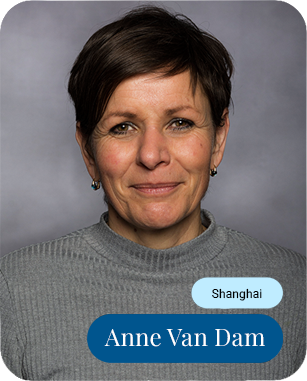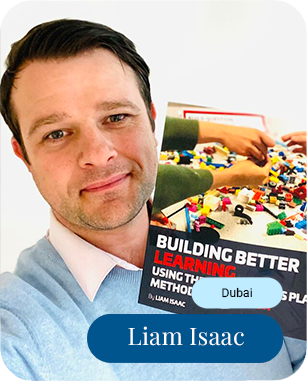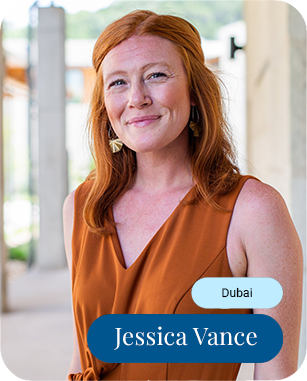 |
|
| Multilingualism in Schools Workshop: |
One of the joys of teaching is the ongoing opportunity to learn, alongside our students and our colleagues. Teaching is a complex, evolving, and rewarding profession that continues to challenge and excite over many years and experiences.
In an increasingly globalised world, schools are becoming more linguistically diverse, and teachers are called upon to adjust to the demands of teaching content alongside teaching language. For the most part, teachers are expected to fulfil their new role with little to no formal training, with the expectation that being a speaker of a language also means that you can teach that language. Research shows that this is generally not the case; teachers need to build a new skill set in order plan and teach for language development alongside content development.
This professional development event has been developed to address key areas of knowledge and practice for supporting language learners in schools. All seminars and workshops are based on the latest research about languages in education and on our extensive experience working with schools, teachers, parents, and language learners around the world. |
| |
| The Multilingual Learner: From Theory to practice: |
| This programme is designed to build knowledge on working with multilingual students. It enables teachers to ensure that multilingual students and students with English as an Additional Language needs are provided with equal access to learning and development. It supports teachers in building the knowledge and the skills to be ‘language specialists’ for their own year groups/subject groups. |
|
This course is suitable for teachers of all subjects and ages. Some of the group work will be designed to allow participants to work with others who have similar job profiles, to allow for contextualisation of the learning.
Topics
Over the course, we will cover the following topics:
Second Language Acquisition: The basics
This session focuses on developing understanding of the key areas of research relevant to teaching multilingual learners. Through an exploration of the evidence on learning languages in school, we will consider the multi-faceted experiences of our students. This research foundation allows teachers to deepen their understanding of key concepts and in turn to develop learner-centred approaches.
Multilingualism in Education: Understanding your learners
This session links the research on second language acquisition with the school experiences of our multilingual learners. We will look at the challenges students face when learning the language of instruction, and carry these through to strategies and supports.
Languages in the Classroom: Key strategies and best practice
This session looks at classroom practice and interventions designed to better respond to the needs of language learners in mainstream education. Issues examined include teacher input, resource adaptation, homework, and the collaborative relationship between language support, mainstream teachers and parents. The overall goal of this session is to give participants the opportunity to critically review classroom practice and resourcing, and to implement and adapt key strategies to better serve language learners.
Literacy and Biliteracy
This session examines the basic tenants of literacy theory through the lens of language learning. Through examining and evaluating material from the perspective of language learning and language enrichment, teachers will develop strategies to support literacy development for all students. Participants will work in levelled groups for this session (Early Years, Primary, Secondary).
Assessment with Empathy and Accuracy
This session focuses on building understanding of the different issues arising from assessment in a second language. It provides a model of fair assessment based on the stages of language learning. Staff will leave with a renewed vision of the different types of assessment available and needed in their classrooms. They will know how to adapt assessments to allow language learners to show progress independent of language skills.
Multilingual Pedagogies: At the intersection of language and learning
Languages are not used in isolation in the real world and need not be used in isolation in classrooms and schools. Translanguaging is the practice of using languages in a dynamic way in education, to support learning, cognitive development, and language growth in multilingual populations. This session covers the research and theory of translanguaging, and provides concrete methods for planning for use in bilingual and super-diverse classrooms. |
|
| Potential Audience: |
| Suitable for teachers of all subjects and ages. |
| |
| About Dr. Eowyn Crisfield |
| Dr. Eowyn Crisfield is a specialist in teaching English as a second/foreign language, teacher-training, and bilingualism. Since 2003, she has specialised in parent and teacher education for bilingualism. She is author of Bilingual Families: A practical language planning guide (2021) and co-author of Linguistic and Cultural Innovation in Schools: The Languages Challenge (2018). She is also an Honorary Norham Fellow at the University of Oxford. |
|
| Venue: |
| Wellington College Education, Shanghai |
| |
| Hotel Details: |
Shangri-La Qiantan Shanghai
上海前滩香格里拉酒店
No.551 Haiyang West Road, Pudong New Area, Shanghai
上海市浦东新区海阳西路551号
(86 21) 5030 8888
Artyzen Habitat Qiantan Shanghai
上海前滩雅辰悦居酒店
596 West Yangsi Road, Pudong, Shanghai, P.R. China, 200126
上海市浦东新区杨思西路596号
(86 21) 5027 8888
Artyzen New Bund 31 Shanghai
上海前滩31雅辰酒店
666 West Haiyang Road, Pudong, Shanghai
上海市浦东新区海阳西路 666 弄 20 号
(86 21) 2058 9999
KIMPTON Qiantan Shanghai
上海金普顿前滩酒店
Block 9, Lane 199 Qiantan Avenue, Pudong District, Shanghai
上海市浦东新区前滩大道 199 弄 9 号
(86 21) 2086 9999 |
| |
| Timings: |
8.30 am to 3.30 pm
Registration at 8.00 am on the 15th of November 2025 |
| |
 |
|
|
| Investment |
USD 850 Closing Date 1st November 2025
USD 750 Early Bird Offer Till 1st October 2025
Includes: Certificate of Participation for 16 Professional Development Hours, Lunch and Coffee Breaks. |
|
|
| Upcoming Workshops |
 |
| From Traces to Meaning: Building a Reflective Culture of Documentation |
| This face-to-face workshop invites educators and leaders to deepen their understanding of documentation as a reflective, research-driven practice that reveals the richness of children’s thinking and relationships. |
 January 17th & 18th, 2026 January 17th & 18th, 2026 |
 Shanghai American School Shanghai American School |
 USD 750 Early Bird Offer Till 15th November 2025 USD 750 Early Bird Offer Till 15th November 2025 |
|
 |
|
| |
| |
 |
| Building Better Learning: LEGO Serious Play for Education |
| The objective of this training is to empower educators and leaders to design and deliver LEGO® Serious Play® sessions that build better learning experiences for the students, staff and community members in their settings |
 April 10th, 11th & 12th, 2026 April 10th, 11th & 12th, 2026 |
 Shanghai American School Shanghai American School |
 USD 1350 Early Bird Offer Till 1st December 2025 USD 1350 Early Bird Offer Till 1st December 2025 |
|
 |
|
| |
| |
 |
| Evidence with Inquiry: Exploring, Questioning, and Documenting with Learning Walls |
| How do we curate spaces to cultivate curiosity yet showcase the messiness of learning? |
 April 11th & 12th, 2026 April 11th & 12th, 2026 |
 Shanghai American School Shanghai American School |
 USD 750 Early Bird Offer Till 1st December 2025 USD 750 Early Bird Offer Till 1st December 2025 |
|
 |
|
| |
| |
| |
|
|
|
|



